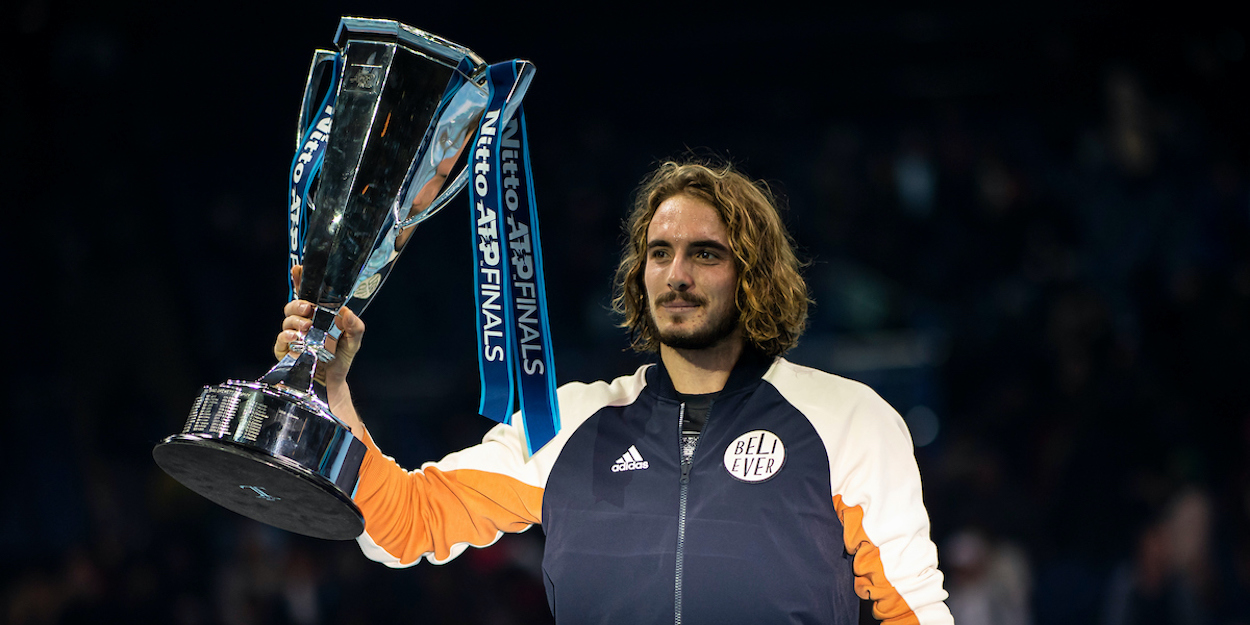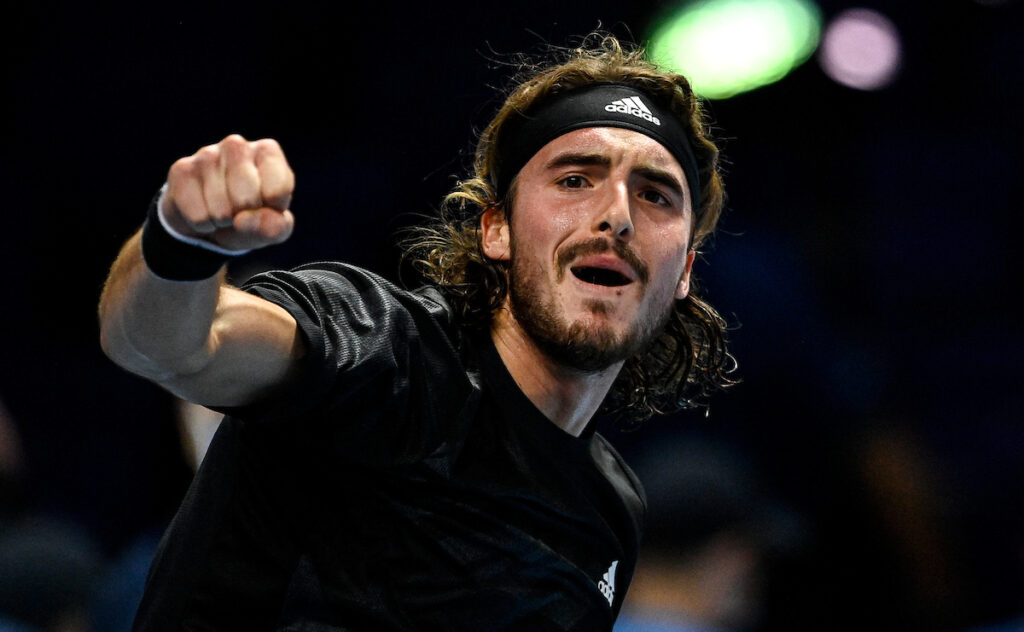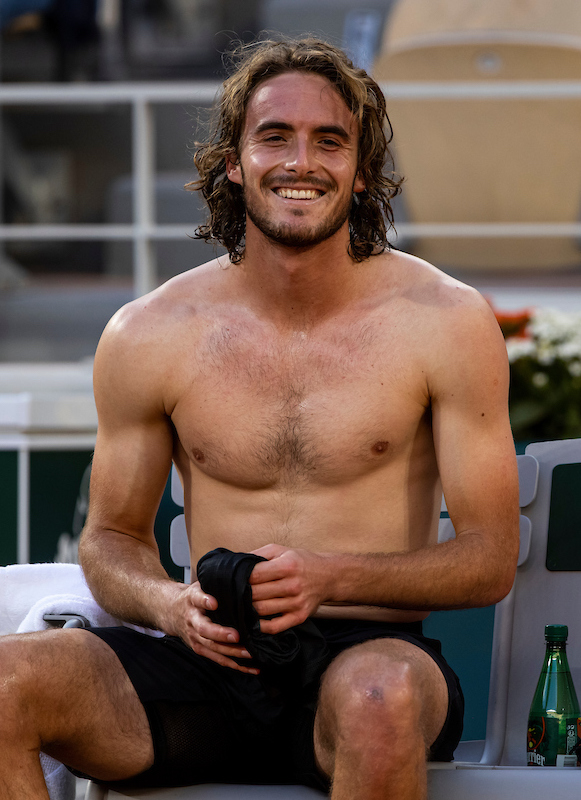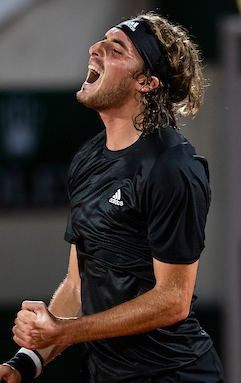
“Stefanos Tsitsipas is learning how to win even on days when he is below his best” says coach Patrick Mouratoglou
“Knowing your own game and understanding how you need to play is only part of the equation. You have to feel it too” says Patrick Mouratoglou, the mentor who has been guiding Stefanos Tsitsipas since his early days as a tennis professional
No player in the world plays his or her best in every match. There are days when, for whatever reason, your level dips. Sometimes it might be because you’re not feeling 100 per cent. On other days it might be because you’re feeling under pressure.
Even Novak Djokovic, Rafael Nadal and Roger Federer have days when their levels dip, just like everyone else, but there is a crucial difference between them and the vast majority of players. On their bad days, their level is still high enough to win most of the matches they play. It’s why, year in and year out, they consistently reach the quarter-finals, semi-finals or finals of the biggest tournaments.

Stefanos Tsitsipas on his way to a victory at the ATP Finals
For every player who wants to reach the very top that has to be a major goal: to perform so consistently that you are able to beat most opponents even on your worst days.
Stefanos Tsitsipas, who has been based at my academy in the south of France since he was a teenager, has been recognised as a major talent ever since his junior days. At the age of 20 he had already beaten Federer, Nadal and Djokovic and reached a Grand Slam semi-final. At the end of last year, just three months after his 21st birthday, he won the year-end ATP Finals in London.
Yet despite those triumphs and despite his outstanding ability, Stefanos has experienced disappointments. In his next five Grand Slam tournaments after last year’s Australian Open, where he had made the semi-finals, he failed to progress beyond the fourth round. On the days when he had not been at his best, his level had simply not been high enough to see him through.
“Even Novak Djokovic, Rafael Nadal and Roger Federer have days when their levels dip”
Stefanos and all his coaching team have been working hard to raise that lowest level – and we’re hoping that Roland Garros 2020 will have proved to be a turning point. In reaching the semi-finals, Stefanos demonstrated the consistency of performance that all great champions need. It’s something that Dominic Thiem has been able to achieve, culminating in his victory at the US Open.

“Stefanos and all his coaching team have been working hard to raise that lowest level – and we’re hoping that Roland Garros 2020 will have proved to be a turning point’
One of the keys to finding that consistently high level is to understand your own game: to appreciate how to make the best use of your talent and to know what you need to do to win matches, while always being ready to make adjustments depending on how your opponent is playing. Once that is clear in your mind it needs to become a habit, because that’s how you will achieve consistently good results. When the greatest players take this on board, it’s usually something that stays with them.
It’s not just about learning and understanding. It’s about feeling it too. Most players don’t intellectualise these things. You can tell them, but it’s something they have to feel as well as understand. When Gael Monfils was in his first junior year, I always remember him telling me one day: “Now I understand how I have to play to win. I get it.” Gael went on to win three of the four junior Grand Slams the following year.
I think Stefanos went through that process during Roland Garros. I believe it’s something that will be with him for good, though it’s important for a player never to take anything for granted. You might get it on clay, but then you start playing indoors on a hard court, in completely different conditions and with a very different set of problems to solve, and you might forget. Nevertheless, my experience with Stefanos tells me that every time you tell him, or he understands or feels something that is very useful and produces the expected outcome, he will retain it. You don’t have to say it twice, because he is so focused and so driven.
Stefanos’ first match at Roland Garros this year, when he beat Jaume Munar after losing the first two sets, was important. In the first two sets he was just too excited, tried to go for winners too early and made too many unforced errors, but he reassessed his game and found the solutions to win. It helped him to learn the right way he should set up his game. After that he didn’t lose a set until he came up against Djokovic in the semi-finals.
His excellent performances in Paris came after a challenging year. Stefanos is someone who likes to play more matches than other players. He has always been like that: playing matches helps him to grow as a player. As a consequence the shutdown was not easy for him, but he adapted well.
Stefanos has so many tools at his disposal. He can perform on all surfaces. He has a powerful forehand and he can volley well. His topspin backhand is a major weapon and his backhand down-the-line has improved a lot. He has also added to his game: his sliced backhand is getting better and better and he is using more drop shots than he used to. He has worked on his serve too, but there is still some margin for improvement. He is a work in progress, but I believe he is starting to look like a complete tennis player.

He’s fast, he’s very balanced and he has great endurance: he can play five sets without any problem and recovers extremely well
When Gael Monfils was in his first junior year, I always remember him telling me one day: “Now I understand how I have to play to win. I get it.”
His physical improvement in the last three years has been huge. When he finished as a junior he was already a very good player, but on a physical level he was a long way behind the leading pros. He’s tall, so you have to be careful: with a frame like his you can be more fragile.
Frederic Lefebvre is in charge of all our fitness at the academy and is the best fitness guy I have ever known. I asked him to have a special look at Stefanos and to travel with him, so that he could work with him on a daily basis and develop his strength. Fred is incredibly thorough. When assessing a player, he starts out by making a complete check of the body. It’s like building a house: the first thing you have to do is make sure that the foundations are sound. Only once that is done will he start working on the player’s physical development.
Under Fred’s guidance, Stefanos has become an outstanding athlete. He’s fast, he’s very balanced and he has great endurance: he can play five sets without any problem and recovers extremely well. For someone of his height he moves really well, both from side to side and forwards and backwards. Today I think he’s physically a match for all the top guys: the difference between how he is now and three years ago is like the difference between day and night.
- Join the tennishead CLUB and receive £250/$350 of FREE GEAR including ASICS Gel-Resolution 8 trainers, shorts, shirt & socks
- Keep up to date with the breaking news & tennis action at our tennis news section
- Win amazing prizes by entering our competitions
- Learn more about your favourite players including Roger Federer, Rafa Nadal and Novak Djokovic
- Check out the latest tennis equipment with our tennis gear reviews
- Receive regular updates in our legendary free newsletter
- Read in depth features with stunning photography in tennishead magazine
- Can’t visit the tournaments you love? Check out our guide on how to watch tennis on TV
- Don’t miss a thing with our Live Scores service
- Follow tennishead on social media at Facebook, Twitter, Instagram & YouTube
- EXCLUSIVE 5% DISCOUNT for all tennishead readers on tennis rackets, balls, clothing, shoes & accessories with All Things Tennis, our dedicated tennis gear partner


